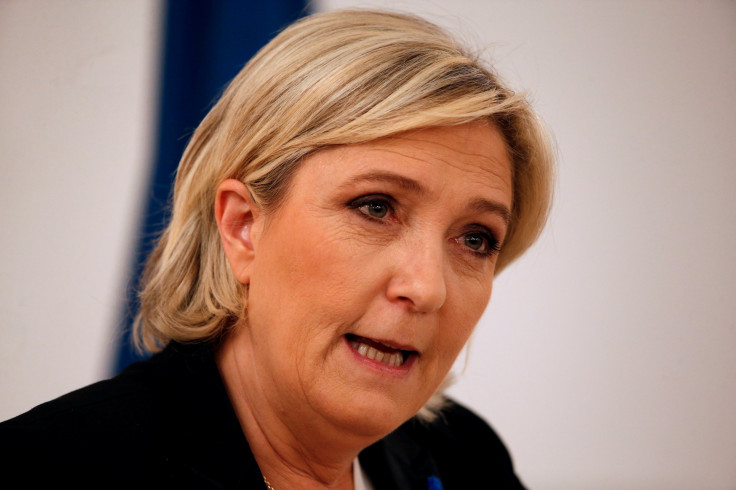Religious War: France Could Ban Burqas, Yarmulkes And Turbans If Marine Le Pen Becomes President

Marine Le Pen, leader of the French National Front political party leader and a leading candidate in France's upcoming presidential election, said all religious symbols should be banned, especially ones that are not "French." Le Pen, whose far-right politics have been labeled racist by critics, said she is not starting a religious war, but rather wants to discourage immigration to France.
Le Pen faces off against centrist candidate Emmanuel Macron in the May 7 runoff election. The candidates have been locked in a near tie for weeks, according to recent polls. In an interview over the weekend with Anderson Cooper, she discussed how immigration is changing France's culture. Roughly 12 percent of France's population is foreign-born.
"It’s because of this massive immigration and more in some places, (that) France’s image has undeniably changed. There are a number of neighborhoods where you are no longer living a French life. That’s undeniable," she said. "France isn’t Burkinis on the beach. France is Brigitte Bardot. That’s France."
She said Muslims should not wear headscarves in public places. "That’s not France. There’s something I just don’t understand: the people who come to France, why would they want to change France, to live in France the same way they lived back home?" she said. "I’m not waging a religious war. It’s clear that in France, everyone has the right to practice their religion, to worship as they choose. My war is against Islamic fundamentalism."
Le Pen said immigrants who do not break laws "have absolutely nothing to worry about."
But Le Pen also doesn't want Jewish people wearing yarmulkes in public. In short, any conspicuous symbol of religious belief should not be part of public life, she said. A Sikh person, for example, wouldn't be allowed to wear a turban, she said.
"We don’t have a lot of Sikhs in France. We’ve got some. But we don’t really hear much from them or about them. Which is good news," she continued.
© Copyright IBTimes 2024. All rights reserved.





















